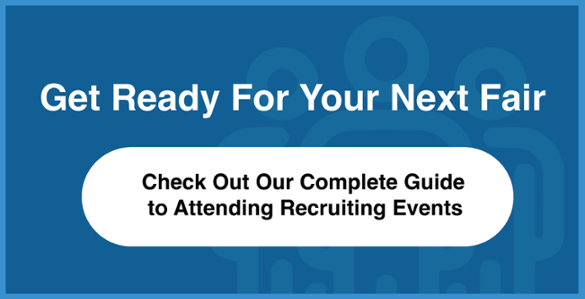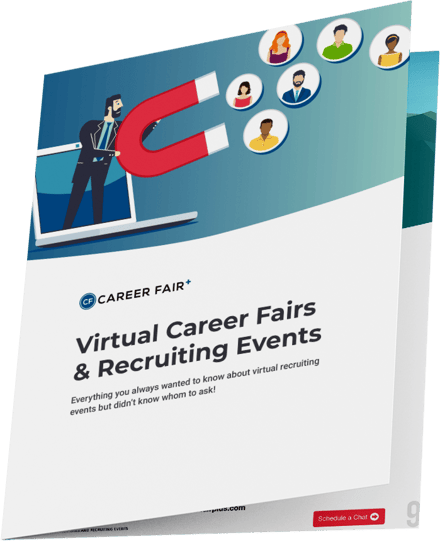 Every college career fair offers numerous opportunities for students to collect information about employers and the job market, submit applications and resumes, and seek advice from the recruiters from companies looking for students to fill vacancies. All this is available, but how do you make the most of the event?
Every college career fair offers numerous opportunities for students to collect information about employers and the job market, submit applications and resumes, and seek advice from the recruiters from companies looking for students to fill vacancies. All this is available, but how do you make the most of the event?
Setting goals is a good start, but setting realistic goals keeps you focused and prevents discouragement.
SMART Goals for College Students
Goal setting using the SMART method is a proven way to define success for a specific situation (a career fair in this case) and measure your progress toward that goal. SMART is an acronym. Each letter stands for a criterion that sets you up for successful completion. Study.com has an excellent video showing ways SMART goal-setting helps university students.
S: Specific - The goal should be specific. Often, this means breaking a more general goal into a set of smaller goals. For example, "I will extend my professional network at the career fair" might break down into smaller tasks like:
- I will write a resume.
- I will prepare answers to typical interview questions.
M: Measurable - Numbers help you see the progress you've made. One of the most common feelings students have after a career fair is "I could have done more." This incomplete feeling can make you feel discouraged even if you've made significant progress.
Here are some examples of ways to add numbers to your goals:
- I will spend 15 minutes each day this week reading the employer descriptions on CareerFairPlus and marking the ones I want to learn more about.
- I will make three appointments with recruiters to meet during the event.
A: Achievable - Achievability is closely related to the measurability criterion. The numbers you assign each goal need to be reasonable. It's okay to stretch yourself, but don't go so far that you can't reasonably succeed. It's better to go over your goal and celebrate than to fall short and feel discouraged.
Let's look at an example:
- I will meet 30 recruiters during the career fair.
During a 2-hour event, that means meeting with a different recruiter every 4 minutes. That may be enough time to drop off a resume and ask a quick question, but even that is pushing it if some of the organizations have a line of students waiting.
What if you connect with the 3rd recruiter you meet and spend 20 minutes setting up post-fair interviews? That's a good outcome, but it will make you fall short of your 30-recruiter goal. The potential result is an ambiguous feeling of success mixed with failure.
R: Results-Oriented - Each goal should have a result that you consider to be successful. The best results are ones you can control. For example, you can't control how many interview appointments you will receive from meeting employers at the career fair. However, you can purpose each goal to maximize the likelihood of offers.
T: Time-Bound - Open-ended goals encourage procrastination. By binding your goals to a specific time, you set a deadline that you can put on your calendar.
- I will submit ten resumes to employers by Friday.
- I will visit the career services website on Tuesday to register for a mock interview.
Binding a goal to a specific time can also help if you are a perfectionist who keeps refining projects even when they are complete. Instead of reformating your resume for the 88th time, you can call it done and move on.
Conclusion
You can prevent career fair discouragement by setting clearly-defined and achievable goals that will bring you closer to your dream job offer. Setting SMART goals will move you forward. As a bonus, many organizations and businesses apply the SMART goal methodology in their operations. In fact, one of the most common interview questions is: "Tell me about a time you set a SMART goal and how it worked out." A career fair is a great time to prepare for that question.

